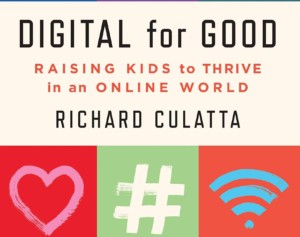12 Trends Impacting the Evolution of Digital Content

I’m speaking this afternoon about the evolution of digital content at an event hosted by Education’s Digital Future, a center at Stanford.
The program includes some great folks:
- Catherine Casserly, CEO, Creative Commons
- Prasad Ram, Founder and CEO of Ednovo, a non-profit education company that develops Gooru, a search engine for learning
- Steve Midgley, Consulting Adviser to the US Department of Education and former Deputy Director of Education Technology, USDoE.
The program “will address the changing character and even meaning of ‘curriculum’ as textbooks and associated learning resources go digital.” I don’t even talk about curriculum anymore. I think about a customized sequence of learning experiences that help students learn and demonstrate knowledge, skills, and abilities.
Twelve big trends are shaping developments in digital curricula:
- Mobile app explosion
- The rise of Open Educational Resources (Gooru Learning, CK12.org, CFY.org)
- Adaptive content (Dreambox, Compass Learning, i-Ready, Knewton)
- Game-based content (Mangahigh, Woogi World, Wowzers)
- Electronic textbooks (Kno, Apple iBooks)
- Social learning (Edmodo, Grockit)
- Unbundling courseware into learning objects
- Grade level collections (Gooru, PowerMyLearning.com)
- Paradata (Kno, OpenStudy)
- Playlists (New Classrooms, Khan Academy)
- Multi-source UX with single sign on & reporting (Education Elements, Buzz, Desire2Learn); and
- Teacher created resources (TeachersPayTeachers, BetterLesson, WeAreTeachers, ShareMyLesson).
I spoke to a foundation executive yesterday about a prize concept developed five years ago—a summer trial with the goal of boosting math achievement by more than two years. As the list above indicates, the world has changed in the last five years. What seemed like a stretch is now very doable—targeted interventions that rapidly diagnosis learning difficulties and accelerate learning.
Platform ecosystems haven’t kept pace with the evolution of content so it’s hard to get all this new stuff to work together and get results to “automagically” drop into a super grade book, but that will get better over the next few years. It’s an exponential evolution!





Tom Vander Ark
Lively chat at Stanford last night. Good questions:
-How can a city organize effective teacher development efforts (for CCSS, shift to digital)?
-Is this wave of startups reducing the vitriol for private enterprise?
And lots of B-school interest in edtech startups.